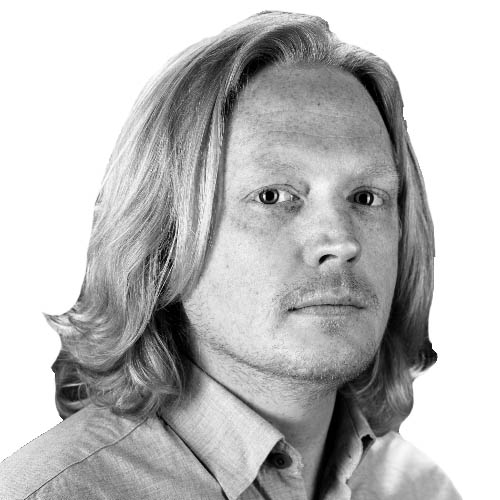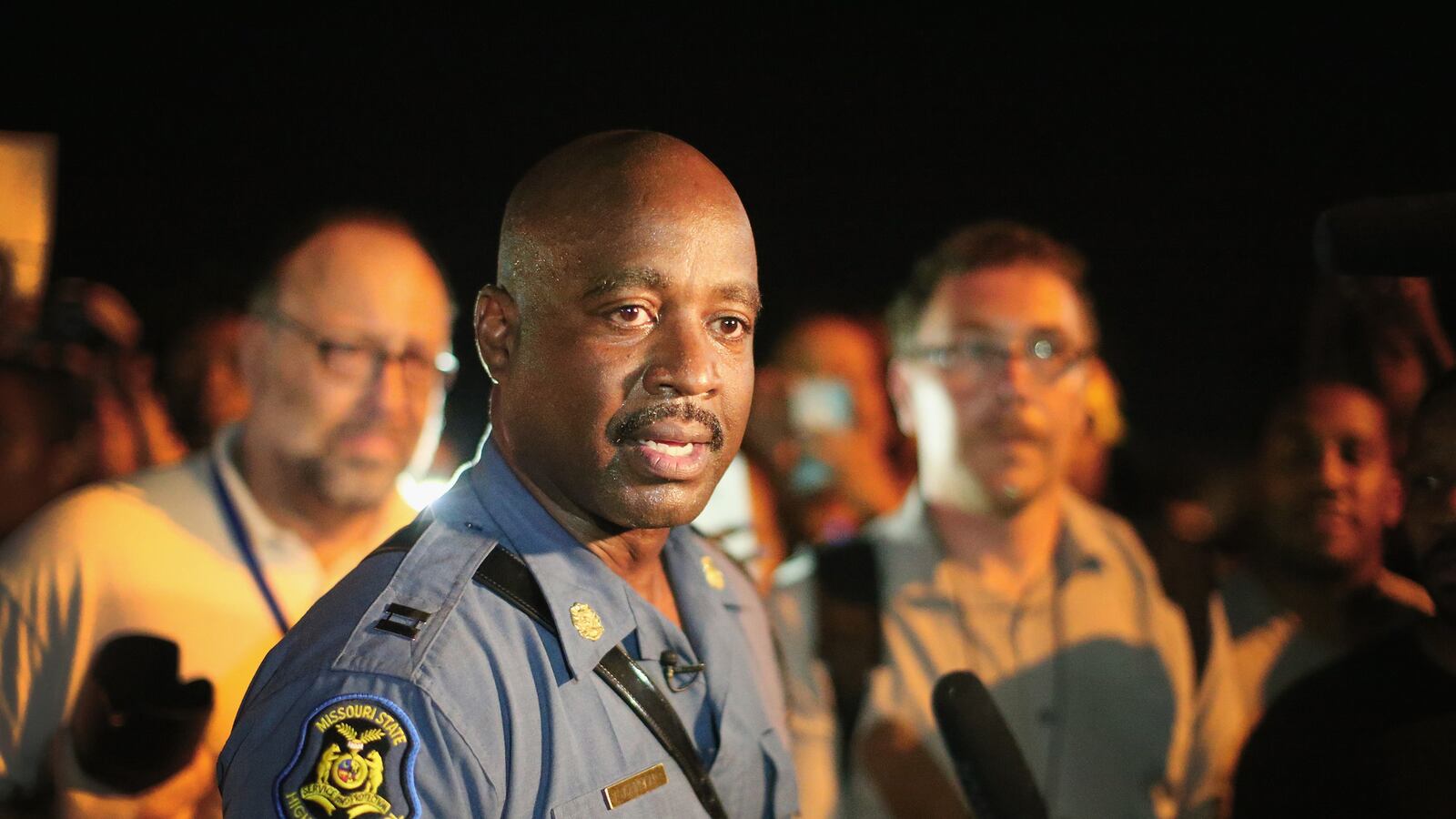FERGUSON, Mo. — Missouri State Patrol Capt. Ron Johnson did what no cop has done for the past five days on Thursday night: He walked through a crowd of more than 1,000 protesters and answered their questions.
“Thank you for coming out here,” one woman told Johnson as he sat in a police SUV late Thursday, taking questions from protesters and hearing their demands that the name of the officer who killed unarmed teen Michael Brown be released.
CNN reported that, according to its unnamed sources, the name would be released on Friday.
As the unexpectedly civil interaction continued, a woman toweled sweat off Johnson's head.
Johnson’s visit marked an evening in which this St. Louis suburb, which had, for the last four nights, been a scene of wrenching violence and become a symbol of explosive rage at what residents, most of them black, saw as unrestrained police brutality following the shooting death of Brown, drew back from the brink.
By 9 p.m. the crowd stood at more than 1,000, with not a single police officer in sight. The hectic but peaceful protesters seemed determined to take advantage of what Missouri Gov. Jay Nixon and President Barack Obama said earlier in separate press statements. Namely, that the people’s right to peaceably to assemble, and to petition the government for a redress of grievances, shall not be met with tear gas and rubber bullets.
“This is currently my community and my home,” Johnson had said at the governor’s earlier press conference, shortly after being named to take over security in the area. “We need to break the cycle of violence … and build trust.”
He tried to do just that on Thursday, making two appearances at the scene of protests. At the first, around 5 p.m., he walked with protesters armed only with his sidearm. Notably absent were the heavily armed and armored cops of the Ferguson Police Department, whose heavy-handed, military-style tactics had seemed to make the situation so much more volatile over the last few days.
“I understand the anger and fear that the citizens of Ferguson are feeling,” Johnson had said, “and our police officers will respect both of them.”
His second appearance was late Thursday, where he met civility with his own.
“You can stay as long as you like,” he told protesters.
Johnson’s calming rhetoric appeared to be working after Wednesday’s night of violent confrontation between police and a crowd of local residents.
“Last night was outrageous,” Sharonda Kyles said of the Wednesday night protests that devolved into tear gas-enveloped anarchy after the sun went down. “I think the police just wanted [the protesters] to leave, so they did whatever they had to do to make that happen.”
In between Johnson’s two appearances, however, things were tense. After his first appearance, as 6 p.m. came and went, crowds gathered at the QuikTrip gas station that looters had destroyed on Sunday. Law enforcement made an appearance just after 7:30 p.m., in the form of two St. Louis Police Department squad cars, but boos came from the crowd. Police left and didn’t return until Johnson’s second visit.
“That was a mistake,” Major Ronnie Robinson of the St. Louis Police Department told The Daily Beast. Following that brief and hectic moment, though, Robinson was hopeful.
“There’s some leaders out here we can work with,” he said, adding that much work remains to heal a city in tumult following Brown’s death. “There’s some deep-rooted issues here that we as a community need to deal with.”
In all, the atmosphere on Thursday night was one of tense wariness and expectation. Everyone was waiting. The protesters who had taken over a burned-down gas station. The crowd of journalists that had swelled to its largest number. The country. The world.
Not everyone, though, is convinced the change in police leadership will result in peace. Brittany Ferrell held a sign in the parking lot of the torched QuikTrip gas station. It read: “The last time they brought dogs and guns to a peaceful rally? Selma, 1963.”
“I think it is a very shallow gesture,” she said of Johnson’s appointment, while her 6-year-old daughter, Mackenzie Davis, circled. Ferrell dropped her daughter off with relatives, but planned on returning at 7 p.m. “I don’t think you should go tonight because the police are acting up,” Davis told her mother.
Ferrell, who flew in from her home in New York earlier in the day, however, called this a historic moment.
“On our way here I had to tell my daughter what she was about to see, what it’s like to have to fight for justice and not be afraid,” she said.






